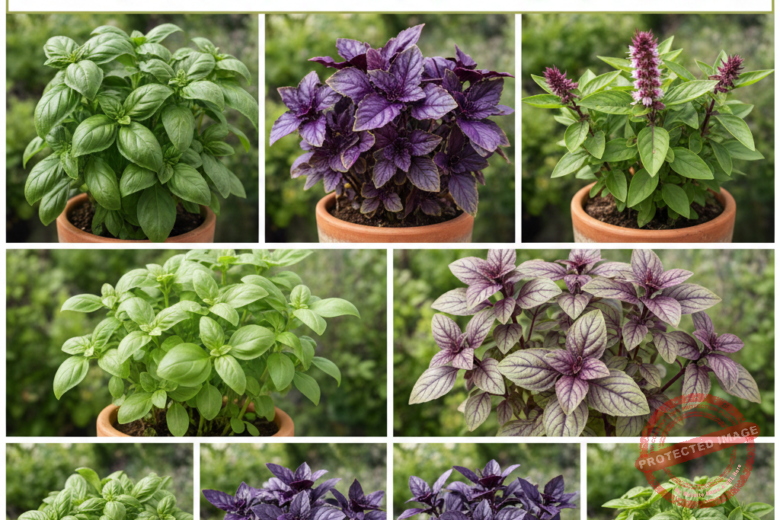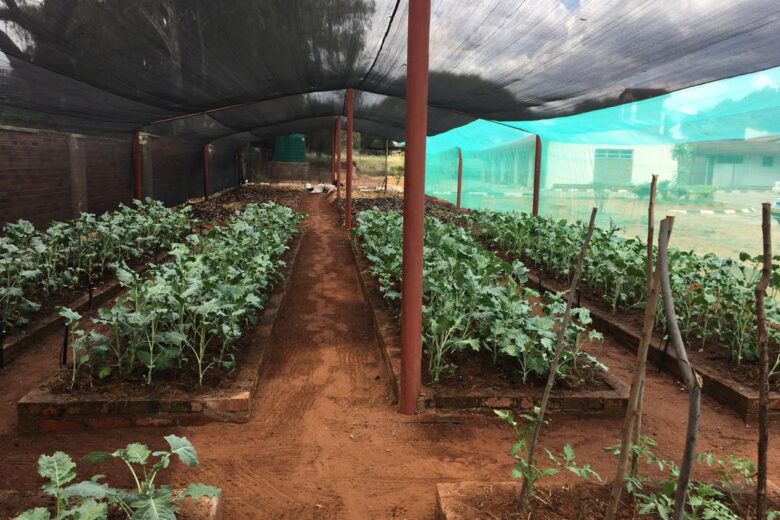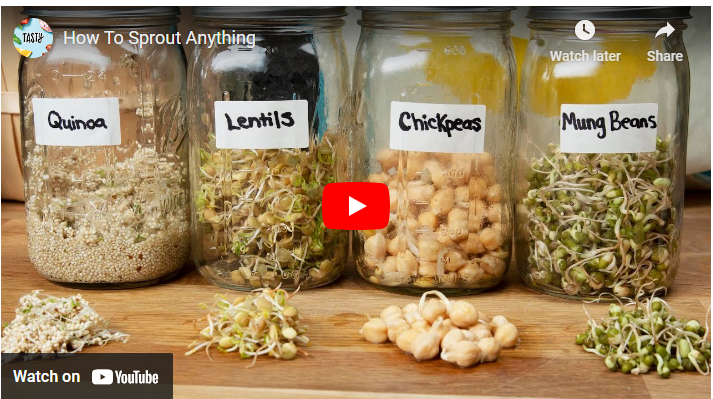Nigeria, with its fertile lands and diverse agro-climatic zones, offers a fertile ground for agricultural success. As an aspiring farmer, you have a plethora of options for profitable crops to grow.
From the renowned cocoa plantations to the ever-popular oil palm groves, Nigeria holds immense potential.
Join the ranks of successful farmers by venturing into the cultivation of cash crops like maize, cassava, and yam, or tap into the growing demand for fruits like pineapple, banana, and watermelon.
Embrace the possibilities and reap the rewards in Nigeria’s thriving agricultural sector.
15 Most Profitable Crops to Grow In Nigeria
Nigeria, known as the “Giant of Africa,” also holds immense potential for agricultural prosperity.
In this dynamic nation, cultivating the 15 most profitable crops can pave the way to success. Join us as we explore these lucrative crops and unlock the agricultural wealth Nigeria has to offer.
- Cocoa
- Oil palm
- Maize
- Cassava
- Yam
- Rice
- Sorghum
- Millet
- Groundnut
- Tomato
- Pepper
- Pineapple
- Banana
- Watermelon
- Citrus fruits (such as oranges and lemons)
Write on each of the following 15 Most Profitable Crops to Grow In Nigeria
#1. Cocoa
As a Nigerian farmer, you have the opportunity to enter the thriving cocoa industry.
With Nigeria being one of the top cocoa-producing countries, cultivating this cash crop can bring significant profits.
Implement proper cultivation techniques, provide optimal shade and moisture, and tap into the international demand for cocoa beans to maximize your returns.
#2. Oil Palm
Take advantage of Nigeria’s favorable climate for oil palm cultivation. By investing in oil palm plantations, you can tap into the lucrative palm oil industry.
With its versatile applications in cooking, cosmetics, and biofuel, palm oil holds immense market demand.
Ensure proper plantation management, adopt sustainable practices, and benefit from the continuous growth in the palm oil sector.
#3. Maize
As a Nigerian farmer, you can capitalize on the high demand for maize. With its versatile applications in food, animal feed, and industrial products, cultivating maize can be a lucrative venture.
Implement modern farming techniques, optimize fertilizer and irrigation practices, and tap into both local and international markets to maximize your profits.
#4. Cassava
Join the success story of cassava farming in Nigeria. This drought-tolerant crop offers various income streams, including food, animal feed, and industrial processing.
As a farmer, focus on selecting high-yielding varieties, practicing proper land preparation, and exploring value-added opportunities such as cassava flour, starch, and chips to boost your profitability.
#5. Yam
As a Nigerian farmer, growing yam can be a profitable choice. With Nigeria being one of the largest producers of yam globally, there is a strong domestic and international market demand.
Implement proper soil preparation, disease management, and storage techniques to produce high-quality yams that fetch premium prices in the market.
#6. Rice
Embrace the growing demand for rice in Nigeria by venturing into rice cultivation.
As a farmer, select suitable varieties, adopt efficient irrigation methods, and implement good agronomic practices to ensure optimal yield.
With the government’s focus on rice self-sufficiency, this cash crop offers a profitable opportunity for you to contribute to the country’s food security.
#7. Sorghum
Seize the opportunity to grow sorghum in Nigeria. This resilient crop thrives in diverse agro-ecological zones and offers various market opportunities.
As a farmer, focus on selecting improved varieties, practicing efficient water and nutrient management, and tapping into the expanding demand for sorghum in food processing, brewing, and animal feed industries to achieve profitability.
#8. Millet
As a Nigerian farmer, you can explore the profitability of millet cultivation. This drought-tolerant crop is in high demand for human consumption, livestock feed, and brewing.
Implement proper land preparation, timely planting, and efficient weed and pest management to ensure a successful millet harvest and capitalize on the increasing market demand.
#9. Groundnut
Join the ranks of successful groundnut farmers in Nigeria. With its versatility and high nutritional value, groundnut is a profitable crop to grow.
Implement proper soil preparation, optimal spacing, and effective disease and pest control measures to achieve high-quality groundnut yields.
Explore both local and international markets for groundnut products like peanut butter, oil, and snacks to boost your profitability.
#10. Tomato
Tap into Nigeria’s growing demand for tomatoes by venturing into tomato cultivation.
Implement proper greenhouse or open-field techniques, efficient irrigation, and disease management strategies to ensure a healthy and productive tomato crop.
With the high demand for tomato paste, sauces, and fresh tomatoes in the local market, this crop presents a profitable opportunity for you.
#11. Pepper
As a Nigerian farmer, consider growing pepper to meet the rising demand for this spicy crop.
Choose suitable pepper varieties, implement proper irrigation and nutrient management practices, and adopt effective pest and disease control measures.
With the market demand for fresh peppers, dried pepper flakes, and pepper-based products, your pepper cultivation can yield profitable returns.
#12. Pineapple
Seize the opportunity to cultivate pineapple in Nigeria. With its sweet and juicy appeal, pineapple has a growing market demand.
Implement proper land preparation, timely planting, and effective pest and disease management to ensure healthy pineapple production.
Explore local consumption, juice processing, and export opportunities to maximize your profits from pineapple farming.
#13. Banana
Embark on banana cultivation as a Nigerian farmer and unlock its profit potential. Select suitable banana varieties, ensure proper spacing and irrigation, and employ effective pest and disease control measures.
With a high demand for bananas in local markets and opportunities for value-added products like banana chips and smoothies, growing bananas can be a profitable venture for you.
#14. Watermelon
Delve into watermelon farming and tap into its profitability in Nigeria. Implement proper land preparation, irrigation management, and pest control practices to ensure healthy and juicy watermelons.
With the growing demand for watermelons in local markets, especially during hot seasons, your watermelon harvest can bring you rewarding returns.
#15. Citrus Fruits (Oranges and Lemons
Explore the world of citrus fruit farming in Nigeria. With its rich flavor and high nutritional value, cultivating oranges and lemons can be a profitable endeavor.
Implement proper soil management, irrigation, and pest control techniques to produce high-quality citrus fruits.
Exploit the demand for fresh citrus fruits, juice processing, and value-added products like marmalades and essential oils to maximize your profits.
Cultivation Techniques of Profitable Crops for Small Farms in Nigeria
- Proper Land Preparation: Clear the land, remove weeds, and incorporate organic matter to improve soil fertility.
- Timely Planting: Adhere to recommended planting dates and use quality seeds or seedlings.
- Irrigation Management: Implement efficient irrigation systems to ensure optimal water supply.
- Nutrient Management: Apply appropriate fertilizers and organic amendments based on soil tests to meet crop nutrient requirements.
- Pest and Disease Control: Monitor crops regularly and employ integrated pest and disease management strategies.
- Harvesting and Post-Harvest Handling: Harvest crops at the right maturity stage and handle them carefully to minimize losses.
Best Practices for Profitable Crops for Small Farms in Nigeria
- Crop Rotation: Practice crop rotation to improve soil fertility and break pest and disease cycles.
- Integrated Crop Management: Implement a holistic approach that combines cultural, biological, and chemical methods to manage pests, diseases, and weeds.
- Efficient Resource Use: Optimize water, fertilizers, and other inputs to minimize costs and maximize yields.
- Record Keeping: Maintain records of inputs, costs, and yields to assess profitability and make informed decisions.
- Continuous Learning: Stay updated on new techniques, technologies, and market trends through training, workshops, and networking.
Risk Management Strategies for Profitable Crops for Small Farms in Nigeria
- Diversification: Grow a variety of crops to spread the risk of crop failure and market fluctuations.
- Insurance: Consider crop insurance schemes to mitigate financial losses due to unforeseen events.
- Market Research: Conduct market analysis to identify high-demand crops and potential buyers.
- Climate-Smart Agriculture: Adopt climate-resilient practices to minimize the impact of climate change on crop production.
- Savings and Investment: Build financial reserves and invest in farm infrastructure and technology to enhance productivity and resilience.
Market Demand of Profitable Crops for Small Farms in Nigeria
The market demand for profitable crops in Nigeria is influenced by factors such as population growth, urbanization, changing dietary preferences, and export opportunities.
High-demand crops include staples like maize, cassava, and rice, as well as cash crops like cocoa, oil palm, and citrus fruits.
There is a growing demand for horticultural crops, such as tomatoes, peppers, and watermelons, both in domestic and international markets.
Factors for Successful Planting of Profitable Crops for Small Farms in Nigeria
- Agroecological Suitability: Select crops that are well-suited to the local climate, soil conditions, and rainfall patterns.
- Access to Quality Inputs: Ensure availability of quality seeds, seedlings, fertilizers, and other inputs from reputable sources.
- Knowledge and Skills: Acquire adequate knowledge and skills in crop production techniques, pest management, and post-harvest handling.
- Farm Management Practices: Practice good farm management, including proper crop rotation, soil conservation, and efficient resource use.
- Access to Markets: Identify reliable markets and establish networks for selling produce at fair prices.
Economic Significance of these Profitable Crops for Small Farms in Nigeria
Profitable crops play a crucial role in the economic development of small farms in Nigeria. They contribute to income generation, poverty reduction, food security, and rural development.
These crops provide employment opportunities, enhance value chain development, and stimulate economic growth through domestic consumption and export earnings.
They contribute to the diversification of the agricultural sector and reduce the country’s dependence on imports.
Most Profitable Vegetables To Grow In Nigeria
- Tomatoes: High demand and market value make tomatoes a profitable vegetable crop.
- Peppers: Both sweet and hot peppers are in high demand, especially for culinary purposes.
- Cabbage: Cabbage is a profitable vegetable due to its versatility and popularity in Nigerian cuisine.
- Watermelon: Watermelons have a short growth cycle and high market demand, making them profitable.
- Okra: Okra is a popular vegetable in Nigeria, and its high demand ensures profitability.
- Green Beans: Green beans have a shorter maturity period and are in high demand in local and export markets.
- Ugu (Pumpkin leaves): Ugu is a traditional Nigerian vegetable with a high market value.
- Spinach: Spinach is a leafy green vegetable that has a consistent demand and good profitability.
- Bitter Leaf: Bitter leaf is a widely used vegetable in Nigerian cuisine, making it a profitable crop.
- Garden Egg: Garden egg is a profitable vegetable crop, especially in local markets and for processing.
Most Profitable Farming In Nigeria
- Poultry Farming: Poultry farming, including chicken and egg production, is a profitable venture due to high demand.
- Fish Farming: Fish farming, particularly catfish and tilapia, is lucrative as fish is a staple food in Nigeria.
- Snail Farming: Snail farming has gained popularity and offers good profitability due to increasing demand.
- Cassava Farming: Cassava farming is profitable as it is a versatile crop used in various food products.
- Rice Farming: Rice farming is highly profitable, considering the high demand and government support in Nigeria.
- Vegetable Farming: Vegetable farming, especially high-value crops, can be profitable due to local and export markets.
- Maize Farming: Maize farming is a profitable venture, given the staple status of maize in Nigeria.
- Oil Palm Farming: Oil palm farming is lucrative as palm oil is widely used in cooking and various industries.
- Cocoa Farming: Cocoa farming, primarily in the southern regions, offers good profitability due to export demand.
- Rubber Plantation: Rubber cultivation is profitable, with rubber being used in industries like tires and footwear.
2 Months Crops In Nigeria
Some crops that can be harvested within 2 months in Nigeria include:
- Green leafy vegetables like spinach, amaranth, and lettuce.
- Herbs like mint, parsley, and basil.
- Microgreens like kale, radish, and mustard greens.
- Some fast-growing varieties of beans and legumes.
- Some varieties of cucumbers and squash.
6 Months Crops In Nigeria
Some crops that typically take around 6 months to mature in Nigeria include:
- Maize (corn)
- Rice
- Cassava
- Yam
- Watermelon
- Pumpkin
- Sweet potatoes
- Okra
- Sorghum
- Soybeans
Crops And Their Planting Season in Nigeria
The planting seasons for crops in Nigeria vary depending on the region and agro-ecological zone. However, some general planting seasons include:
- Maize: April to June
- Rice: May to July
- Cassava: March to May
- Yam: March to April
- Tomato: February to March and August to September
- Pepper: March to April and September to October
- Okra: March to April and September to October
- Cowpea: May to June and October to November
Top 10 Richest Farmers In Nigeria
- Aliko Dangote
- Folorunsho Alakija
- Cosmas Maduka
- Orji Uzor Kalu
- Oba Otudeko
- Jimoh Ibrahim
- Muhammadu Indimi
- Abdul Samad Rabiu
- Tony Elumelu
- Pascal Dozie
Conclusion
The cultivation of the 15 most profitable crops in Nigeria promises a prosperous future for farmers. Whether you choose to grow cocoa, oil palm, maize, or fruits like pineapple and banana, the opportunities for success are abundant. Embrace the potential, implement effective farming practices, and embark on a journey of agricultural profitability in Nigeria.



